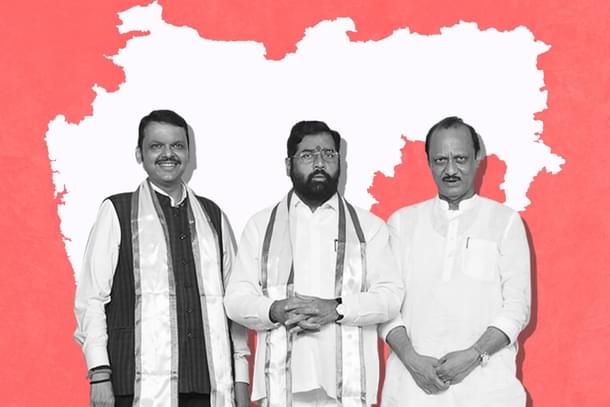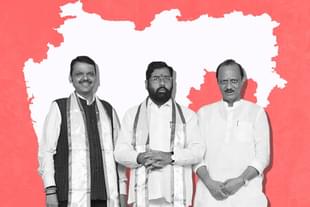News Brief
Maharashtra's 2025 Budget Proposes AI In Farming, Tapi Irrigation Project, Rs 64,000 Crore For Mumbai Infrastructure
Arjun Brij
Mar 10, 2025, 08:14 PM | Updated 08:14 PM IST
Save & read from anywhere!
Bookmark stories for easy access on any device or the Swarajya app.


On Monday (10 March), Maharashtra's Deputy Chief Minister Ajit Pawar tabled his 11th budget on the floor of the Vidhan Sabha, outlining a strategic vision focused on strengthening infrastructure, agriculture, industry, and social welfare.
He opened his budget speech with a brief verse, expressing gratitude to the “Ladki Bahini” and credited their support, along with Prime Minister Narendra Modi’s leadership, for the government’s return to power.
Pawar also acknowledged that several provisions in the Union Budget 2025 would translate into substantial funding for key projects across Maharashtra, Financial Express reported.
Agriculture and Irrigation
Reaffirming agriculture as a top priority, the budget allocates substantial funds to enhance farmers' income and productivity. A notable initiative is the promotion of Artificial Intelligence (AI) in farming, with a pilot project over 1 lakh acres, benefiting 50,000 farmers.
This initiative aims to modernise agricultural practices and increase yields. Pawar emphasised, "Agriculture remains our top priority, with a strong emphasis on boosting farmers’ income. To enhance productivity, we will actively promote Artificial Intelligence (AI) in farming."
In the realm of irrigation, a Rs 19,300 crore project is planned for the Tapi River Valley, underscoring the state's commitment to improving water resources for agriculture.
Additionally, the Gosikhurd National Project has already created irrigation capacity for 12,332 hectares as of December 2024, with a proposed Rs 1,460 crore outlay for 2025-26, aiming for completion by June 2026.
Furthermore, Rs 8,200 crore has been allocated for urban wastewater recycling to support agriculture and industry, reflecting a focus on sustainable water management.
Infrastructure Development
The budget places a strong emphasis on infrastructure, with Rs 64,000 crore allocated for Mumbai's infrastructure projects.
A significant development is the proposal for a third airport near Vadhvan Port in Palghar district, which is also set to be connected to the Mumbai-Ahmedabad Bullet Train and the Samruddhi Highway.
The Vadhvan Port, a deep-sea port project costing Rs 76,220 crore, is expected to triple the current cargo handling capacity of the Jawaharlal Nehru Port, positioning Maharashtra as a maritime transport superpower by 2030.
To enhance road infrastructure, the state plans to generate 500,000 jobs, with a major focus on road development. The Thane coastal road project, stretching from Gaimukh to Kharegaon, is among the key initiatives aimed at improving connectivity and reducing traffic congestion.
Industrial Growth and Employment
Pawar also announced that the government will soon Industrial Policy 2025 aiming to attract Rs 20 lakh crore in investments and create 5 million jobs.
A 'One District, One Product' initiative will be implemented to develop districts as export hubs, promoting regional specialization and economic growth.
The state has also formulated a logistics policy, dedicating 10,000 acres to developing logistics infrastructure, which is expected to generate 500,000 direct and indirect jobs.
Seven commercial hubs will be developed in Mumbai, with the city's economy projected to grow from $140 billion to $300 billion, aiming for a $1.5 trillion economy by 2047.
Renewable Energy
In a step towards sustainable energy production, a 200 MW solar power project worth Rs 1,594 crore has been approved for the Mhaisal Upsa Irrigation Scheme in Sangli district.
Social Welfare
The budget proposes a Rs 50.55 crore allocation for the Lek Ladki scheme, which has directly benefited 113,000 women, empowering them with financial support.
Beneficiaries of the Sanjay Gandhi Niradhar Grant Scheme, Shravan Bal Seva State Pension Scheme, and other special assistance programs will now receive direct bank transfers, ensuring timely and transparent disbursement of funds.
Administrative Reforms
A seven-point action plan for the first 100 days has been prepared to ensure greater transparency in administration. Offices delivering outstanding performance will be recognised and rewarded, promoting efficiency and accountability within the government.
Arjun Brij is an Editorial Associate at Swarajya. He tweets at @arjun_brij





